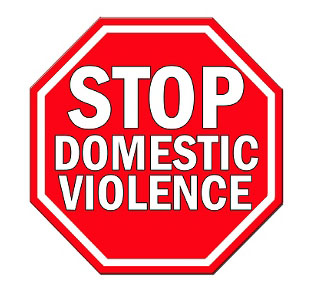
December 16, 2009
Domestic violence should not happen to anybody. Ever. Period. But it does – and when it does, there is help in San Francisco. One such helpful organization is the Cooperative Restraining Order Clinic (CROC).
CROC is a collaborative city-wide project which helps domestic violence survivors in San Francisco get restraining orders against their abusers. The services are free and confidential. It is the main way in which women in San Francisco obtain restraining orders. At CROC, clients meet one-on-one with an interviewer who is usually a volunteer. The interviewer then prepares the paperwork necessary to file for a restraining order. Interpreters are available at the clinics for clients who do not speak English or Spanish. Child care is also available. Clinic appointments are scheduled on Saturday mornings or on Thursday evenings. Now CROC needs help to weather the economic downturn.
After the initial interview, CROC files the client’s restraining order request at the Family Court and obtains a Temporary Restraining Order that lasts until a court hearing. The Temporary Restraining Order must be personally served on the abuser, and CROC can assist with this service. CROC attorneys accompany clients to their restraining order hearings and arrange for interpreters. CROC does not represent victims; it assists them in preparing the necessary paperwork to apply for a restraining order.
Last year CROC provided services to 1,038 domestic violence, sexual assault, and stalking survivors, an increase of 13 percent over the previous year. CROC also experienced a 12 percent increase in non-English speakers, who now represent 28 percent of individuals seeking CROC’s services.
Domestic Violence Prevention Act
The restraining orders are authorized under California’s Domestic Violence Prevention Act (DVPA). DVPA defines domestic violence as abuse toward an intimate partner or family member. This may include your current or former spouse or dating partner, a person you have lived with or a relative by blood, marriage or adoption. It is a type of violence that cuts across all cultures, ethnic backgrounds, education levels, and income brackets. It impacts same-sex partners as often as heterosexual partners. It occurs among teenagers as well as senior citizens, and men as well as women.
Domestic violence is behavior driven by a need to control. It can range from threats, annoying telephone calls and stalking (such as following the victim to and from work, and threatening the victim), to unwanted sexual touching, hitting and destruction of the victim’s personal property.
After a hearing, the restraining order is issued by the Family Court. The purpose of the order is to stop physical violence, sexual violence, or stalking. The court will also make custody and visitation orders regarding any children the victim shares with the abuser and can make child and spousal support orders. The court can order the abuser to move out of the victim’s home and can sometimes make orders about items of property they own together or items of the victim’s the abuser has in his/her possession.
Emergency Protective Orders
If a person is in immediate danger, he or she can ask a law enforcement officer to ask for an Emergency Protective Order from a Judge. An Emergency Protective Order only lasts for 5 court days or 7 calendar days.
Budget Restraints
Unfortunately, this year’s economic climate has been tough on non-profits like CROC while at the same time CROC is experiencing an upsurge in the number of victims seeking its services. CROC has lost an unprecedented amount of public funding. As a result, CROC’s two staff attorneys have taken voluntary salary reductions. CROC believes that it is not acceptable to turn away victims due to funding challenges. Thus, it is reaching out to the community for financial support.
Ralph E. Stone is a CROC volunteer.


 The Hunger Site
The Hunger Site
No Comments
Comments for Cooperative Restraining Order Clinic Needs Help are now closed.